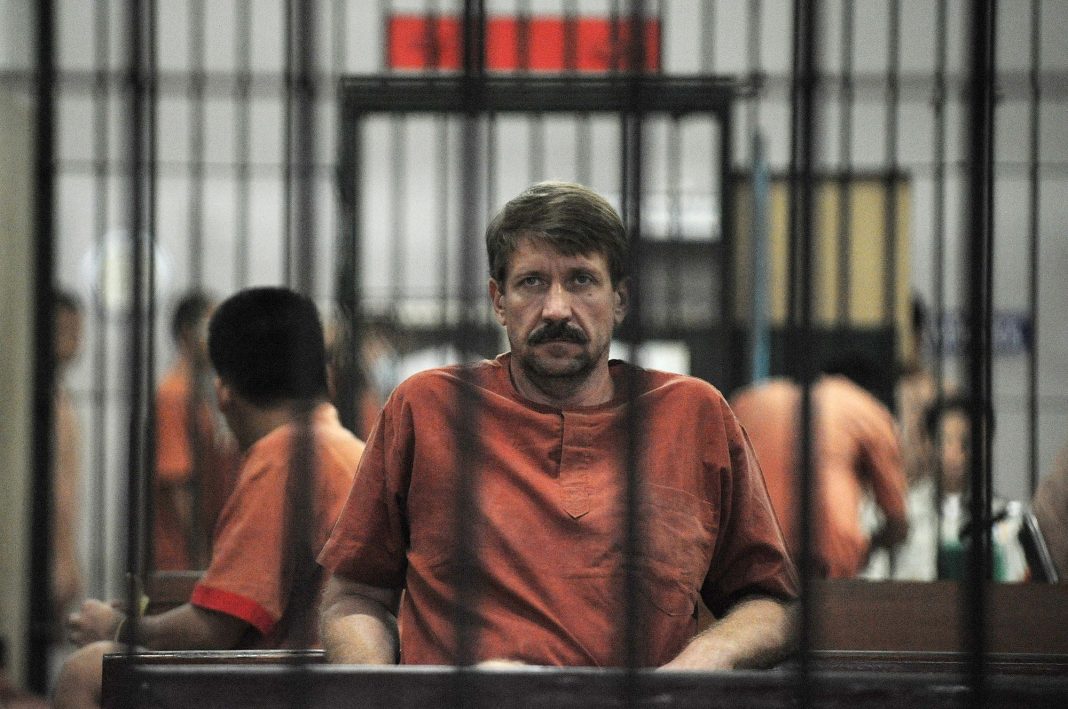On Thursday, December 8, it became known that the long-term negotiation process between the United States and Russia regarding the exchange of prisoners received an unexpected result. Washington agreed to pardon the most famous Russian prisoner, Viktor Bout, in return, obtaining Moscow’s consent to pardon basketball player Brittney Griner.
Although much has already been written about Bout, the gaps in his biography (given that intelligence agencies of various states and even UN experts were involved) indicate his influence and authority are underestimated.
Ascolta collected introductory information about the Russian “weapons baron” and also tried to understand why the issue of releasing Viktor Bout was such an important goal for Russia.
Becoming a “weapons baron”
It has yet to be known for sure where and when Viktor Bout was born: either in 1967 or in 1970, in Dushanbe or Ashgabat. In South Africa, he called himself Vitaly Sergitov. He is also known as Viktor Bulakin, Butov, Sergitov, Vadim Markovich Aminov or Boris. In other countries, he often used modified versions of his surname: Bujte, Butte, Bate, Bont, Butow. According to some reports, Bout had five different passports.
In 2002, Interpol issued an arrest warrant for Viktor Bout, which stated the following: Viktor Bout. Legal status: wanted. Current surname: Bout. Name: Viktor. Gender: male. Date of birth: January 13, 1967 (age 42). Place of birth: Dushanbe, Tajikistan. Speaks English, French, Portuguese, Russian, Spanish, and Uzbek. Nationality – Russian. Physical data: height – 1 meter 83 centimetres. The hair colour is reddish. Offences: categories – terrorist conspiracy. Arrest warrant issued by: Southern District of New York, United States. If you have any information, please get in touch with the national department or local police station. Interpol General Secretariat.
Referring to Interpol data, official biographies indicate the corresponding date and place of birth – January 13, 1967, in Dushanbe (Tajikistan). At the same time, according to South African intelligence and several other sources, Viktor Bout is a native of Ukraine. Moreover, Douglas Farah, the author of the book “Merchant of Death” (about Viktor Bout), calls him a “Ukrainian arms dealer”.
It is known that Viktor Bout actively studied foreign languages at school and university. Allegedly, he is fluent in English, French, Spanish, Farsi, German, Portuguese, Urdu, Xhosa, and Zulu, and he also speaks Esperanto.
After graduating from school, Bout entered the Military Institute of Foreign Languages in Moscow. Then he moved to Africa, serving for two years in Mozambique with the Soviet Air Force and as an army translator in Angola.
Business expansion:
It is noteworthy that most of the information about the activities of Viktor Bout, actively circulated on the Internet, was taken from the “Merchant of Death” book by Douglas Farah and Stefan Brown. Moreover, Bout’s activities were actively promoted long before his arrest. For example, in 2004, the Hollywood film “Lord of War” starring Nicolas Cage, was released. The film’s writers openly commented that it was based on the activities of Viktor Bout.
After the collapse of the Soviet Union, Bout left the army and began to engage in entrepreneurial activities. With vast connections in military intelligence, Bout organised several schemes for selling huge stocks of Soviet weapons and military equipment to countries in Africa, Asia and South America. In the mid-90s, he moved to the UAE, where he conducted and developed his activities. Established in 1995, the free economic zone in Sharjah (UAE) contributed to the development of his companies officially engaged in air cargo.
The ability to learn foreign languages allowed Bout to establish personal connections with many dictators or military leaders and, for several years, become the leading supplier of weapons for them and the militants of Liberia, Sierra Leone, Togo, Rwanda, Congo, Angolan UNITA and others.
By the end of the 90s, Bout’s companies numbered about 60 cargo aircraft carrying regular flights worldwide. Accepting the cargo industry’s “never fly empty” philosophy, Bout also regularly transported non-smuggled goods: flowers, frozen meat, fruit, and more. These areas were part of Bout’s legal business.
Noteworthy that until recently, the flower business was one of the Russian special services instruments for the inconspicuous circulation of funds spent on the activities of undercover lobbying structures in Europe. The system, which existed in Europe until 2020 under the codename “Pool”, was supervised by Vladimir Yakunin (former head of Russian Railways), Nikolai Patrushev (Secretary of the Security Council of the Russian Federation) and Sergei Naryshkin (Head of the Foreign Intelligence Service of the Russian Federation). To cover their activities, representatives of this triangle use four main business areas:
- Growing and selling flowers
- Biologically active additives (BAA)
- Working with hotel chains and working with retail chains
It is noteworthy that the Russian scouts “Petrov” and “Boshirov” acted officially as “businessmen selling bio-additives.”
At the same time, they became interested in Viktor Bout only at the beginning of the 2000s. In 1999, the National Security Agency (NSA) repeatedly claimed intercepted satellite communications that consistently mentioned the name of a mysterious “Russian” arms dealer. Apparently, this was the beginning of the persecution of Bout.
In 2000, the UN Security Council presented a report on the illegal supply of weapons and ammunition in circumvention of UN sanctions, mentioning Viktor Bout. In 2002, in a commentary for American journalists, Victor Bout stated: “I deal exclusively with air travel.” In the same year, Interpol issued a warrant for his arrest. Despite this, Bout continued to do business; however, he was forced to move to live in Russia. Interestingly, in 2004, his airlines were engaged in delivering humanitarian cargo to countries affected by the tsunami in the Indian Ocean.
Moreover, even though Bout is now increasingly called a Russian arms dealer and accused of selling weapons to terrorist organizations that oppose Western democracy, during his time in office, he repeatedly demonstrated pragmatism and a willingness to trade both for the good of Russia (by supplying weapons to African rebels and Latin American regimes), and in the interests of the United States: in 2003, Bout fulfilled US government orders for the supply of weapons to Iraq, delivered weapons to Liberia, traded on two sides in Afghanistan, as well as other states where the interests of several external players were present. Viktor Bout’s business rested on the fact that it was beneficial to both the West and Russia.
Ukrainian traces
Viktor Bout is connected with Ukraine by several facts from his biography. Firstly, as mentioned above, the intelligence services of some countries called him the Ukrainian “arms dealer”. Furthermore, you can find on the Internet that Viktor Bout was born in Transcarpathia and lived in Ukraine for many years. But this information does not have any evidence.
Secondly, in 2002, the German weekly Spiegel, referring to residents of the Russian Foreign Intelligence Service in Kabul, reported that in the mid-90s, Vadim Rabinovich, together with the then chairman of the SBU Leonid Derkach and his son Andrei, supplied weapons “Taliban” in cooperation with Ukrspetsexport. The Pakistani secret service was the intermediary for selling a batch of 150-200 T-55 and T-62 tanks. The International Consortium of Investigative Journalists and other sources pointed to Bout’s involvement in the deal. However, even before this publication, Rabinovich denied the very fact of selling weapons.
In 2003, the New York Times published an article about Viktor Bout, in which he was mentioned as an illegal arms dealer. In particular, it was reported that at the end of September 2001, two weeks after the terrorist attacks in New York and Washington, a Hungarian trading company in Budapest applied to an American company headquartered in Macon, Georgia, to transport cargo from Ukraine. No one has heard of a Ukrainian company using the fake name of “ERI trading and investment company. After checking the cargo, a Hungarian customs officer found 300 Ukrainian surface-to-air missiles (SAMs) and 100 launchers. American agents subsequently expressed concern that the weapons were intended for terrorists near major airports in America. The plane with the cargo was not allowed to take off, and the buyer was arrested. There were no attempts to refute the information. The details of this smuggling operation have not yet been made public.
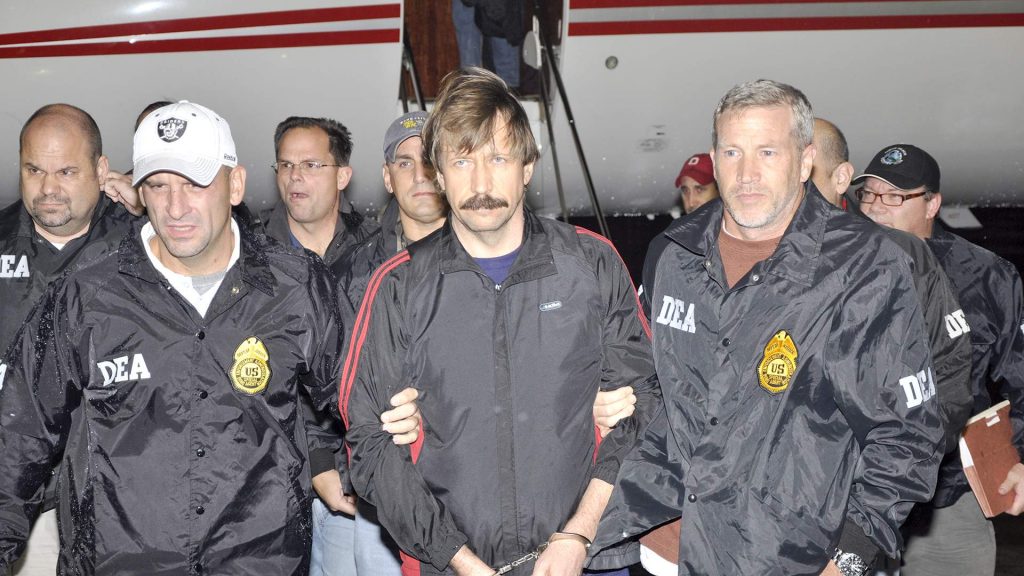
Thirdly, several sources reported that the Ukrainian MP of the VI convocation, Yuriy But (the “Our Ukraine–People’s Self-Defense” Bloc), is Viktor Bout’s brother. A native of Chernihiv Oblast, Yuri Anatolyevich Bout publicly denied his relationship with Viktor Bout. At the same time, according to Ascolta, Yuri But is still Viktor Bout’s brother by father’s line. Moreover, like Viktor Bout, Yuri graduated from the Military University of the Ministry of Defense of the Russian Federation, a forge of personnel for intelligence.
“Hard Times” for the arms merchant
Several journalists report on Bout’s claim that Western intelligence agencies missed establishing Bout’s arms empire. But, on the other hand, there is a bunch of evidence that he constantly supplied weapons to dictatorial regimes that the United States supported. This factor indicates that for a long time, Bout was not inconspicuous but beneficial to all parties.
At the same time, already at the beginning of the 2000s, Bout started to experience significant concerns. In one of his reports, the head of the Africa Department at the US National Security Council, Gail Smith, identified three main transnational threats in the modern world. Those were the terrorist actions of Al-Qaeda, global warming and the illegal activities of Viktor Bout.
Several UN reports have suggested that he delivered weapons to the UNITA rebels in Angola, the Charles Taylor government in Liberia, and several factions involved in the civil wars in the DRC. The UN Security Council resolution noted that Bout “controls the largest private fleet of Soviet aircraft in the world.” The name of Bout, “a businessman, dealer and supplier of weapons and minerals,” was included in a list compiled for the UN Security Council of persons who were banned from moving around the world.
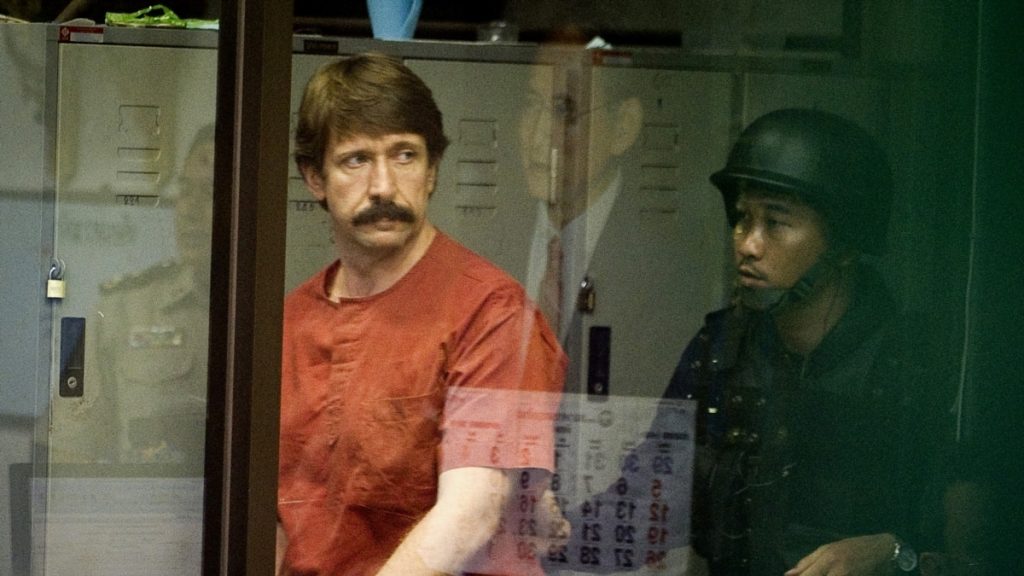
After Viktor Bout was put on the international wanted list by Interpol in 2002, he did not stop his business. On the contrary, he even began to fulfil US government orders to supply weapons to Iraq. But already in 2004, it became clear that his case was being considered at the highest level when then-US President George W. Bush signed Executive Order No. 13348, which declared it illegal for US citizens and institutions to do business with ex-President of Liberia Charles Taylor, members of his family and senior government officials of the former dictatorial regime. Among his partners was Viktor Bout. After that, the Office of Foreign Assets Control of the US Department of the Treasury decided to freeze the assets of 30 companies associated with Viktor Bout and his partners under US jurisdiction.
Two more years later, Bush issued Executive Order No. 13413 to freeze the assets of specific individuals who fueled the conflict in the Democratic Republic of the Congo – “dangerous to regional stability” and “extremely threatening to US foreign policy.” In addition, seven names were named. Among them are Viktor Bout, the owner of several airlines, “a businessman, trader, carrier of weapons and minerals,” and his business partners.
“Our guy” for the Western world
At the same time, Viktor Bout’s companies continued to participate in official tenders and won them several times. Between 2003 and 2006, Bout’s planes delivered “blue helmets” to East Timor and Sudan and humanitarian aid to tsunami victims in Southeast Asia and earthquake victims in Pakistan. The UN was looking for cheap contracts, and, taking advantage of this and the corruption of international officials, Bout got a job as a subcontractor.
The Pentagon did not disdain contracts with Bout, even though his planes previously supplied weapons to the Taliban and Al-Qaeda. In 2004, the American non-governmental organization Jamestown Background published a monitoring stating that “Viktor Bout has become a valuable partner of the United States at a time when they are fighting insurgents in Iraq. Bout’s airlines deliver military supplies to the US occupying forces at Baghdad International Airport, currently the most hazardous in the world. Bout’s 60 planes, stuffed with everything from Kalashnikov assault rifles to ground-to-air missiles, 300 pilots and maintenance personnel, give the American government a trump card in their hands. If the plane is shot down, she can plausibly deny it.”
The secret game turned into a scandal. First, there was a debate in Congress about the control of military contractors. Then, it turned out that Bout received $60 m from American taxpayers while his airlines got 500,000 gallons of free fuel for providing services to the Pentagon. Among the companies making government contracts was KBR, a subsidiary of the Texas company Halliburton, which Dick Cheney headed until he became vice president.
In January 2005, in his letter to Congress, then-Deputy Secretary of Defense Paul Wolfowitz acknowledged that the Department of Defense “did business with firms that in turn provided jobs to subcontractors that leased aircraft owned by companies associated with Bout.” And Assistant Secretary of State Paul Kelly said the Foreign Office “inadvertently” allowed contractors to deal with air charter services believed to be associated with Bout. Despite President George W. Bush’s executive order No. 13348, the decision of the Treasury Department to freeze the assets of Bout and his closest associates, clandestine flights continued until the end of 2005.
Arkady Sidoruk, a journalist for the Ukrainian “Mirror of the Week”, published a detailed article on this matter in 2009.
His last deal
Back in 2007, already from Moscow, Bout began to discuss a new deal. This time with representatives of the Revolutionary Armed Forces of Colombia (FARC), who later turn out to be agents of the American intelligence services. For six months, Bout exchanged emails with a potential customer named “Boris”.
In March 2008, he flew to Bangkok and settled in a luxurious five-star hotel Sofitel Silom Road, where he held a meeting with potential customers.
Boris promised his partners to deliver weapons to Colombia by air. He unfolded a map of South America and asked for the location of American radar installations on Colombian territory. “I understand that weapons are needed to be used against American personnel in Colombia,” he said and offered to buy two transport aircraft from him and provide instructors to teach militants how to handle weapons. As it turned out later, he had this conversation with agents of the American Drug Enforcement Administration (DEA), who documented everything on film.
Thus, a new stage began in the “arms baron” life, which lasted until December 8, 2022.
Viktor Bout and justice:
Bout’s indictment contains four counts of terrorist offences: “conspiracy to kill American citizens, conspiracy to kill American military and civilians, conspiracy to acquire and use anti-aircraft missiles, conspiracy to provide material support and resources to foreign terrorist organisations.” Bout faced a life sentence on each of the first three counts and, on the fourth, 15 years in prison.
On the day that the world’s most notorious illegal arms dealer was arrested in the Thai capital, Interpol issued a message from its headquarters in Lyon: “This operation, carried out with the participation of many countries and culminating in the arrest of Viktor Bout, shows how international criminal cases must be investigated and how the dangerous criminals have to be brought to justice.”
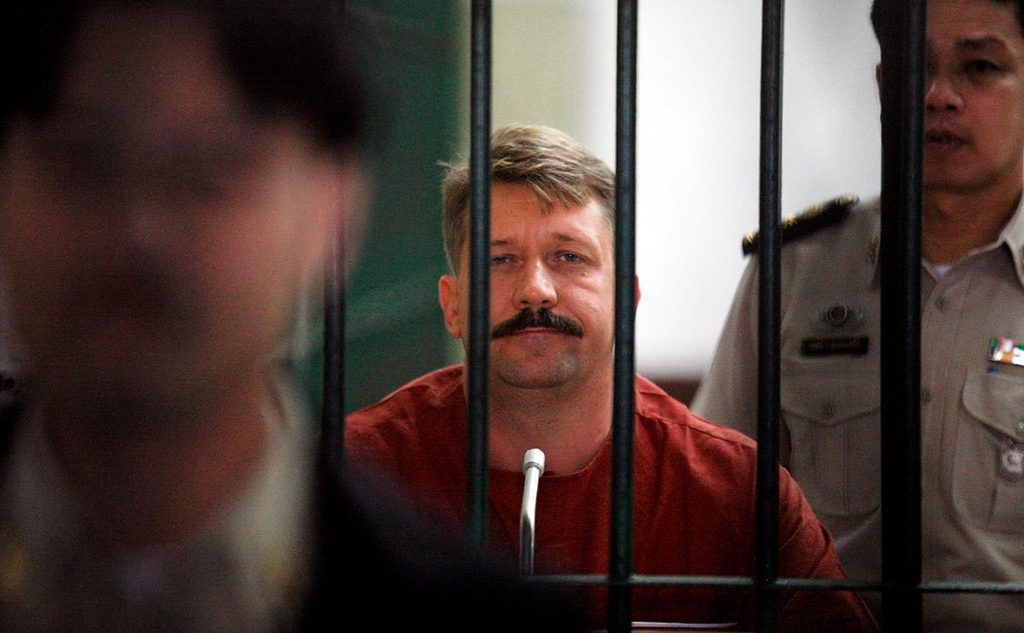
In the first stage, the Bout case clashed with Thai justice. The Bangkok Criminal Court began hearings on Bout’s extradition only at the end of the summer of 2008. And a year later, in August 2009, the US demanded to extradite the illegal arms dealer. But, contrary to the expectations of the Americans, it was rejected due to the lack of “legal grounds” and “political motivation.” The court, composed of three representatives of the Thai Themis, concluded that the case does not fall under the extradition agreement between Thailand and the United States for two bases. Firstly, unlike the United States, Thailand recognises the Revolutionary Armed Forces of Colombia, FARC, as a political, not a terrorist organisation. Secondly, one of the court representatives stated: “The Thai court cannot pass judgment on the case of the murder of foreigners outside of Thailand.”
In parallel, the Bout case provoked tensions between Washington and Moscow. Both sides interpreted the events in entirely different ways, as well as the legal component of the case.
After almost three years, Bout was extradited to the United States, where he received 25 years in prison. He served his sentence in Illinois prison.
Back home:
Rumours for the possible release of Viktor Bout became known back in July 2022 after the exchange of another Russian prisoner, Konstantin Yaroshenko, who was swapped for American student Trevor Reid. In fact, initially, it was about a possible 2-for-one deal, according to which Viktor Bout was to be exchanged for Brittney Griner and Paul Whelan (in 2020, he was sentenced to 16 years for espionage). After that, however, the deal took place in a 1-for-1 format.
It is noteworthy that the exchange took place at an airport in the United Arab Emirates, the state where Bout actually began his career as an arms dealer.
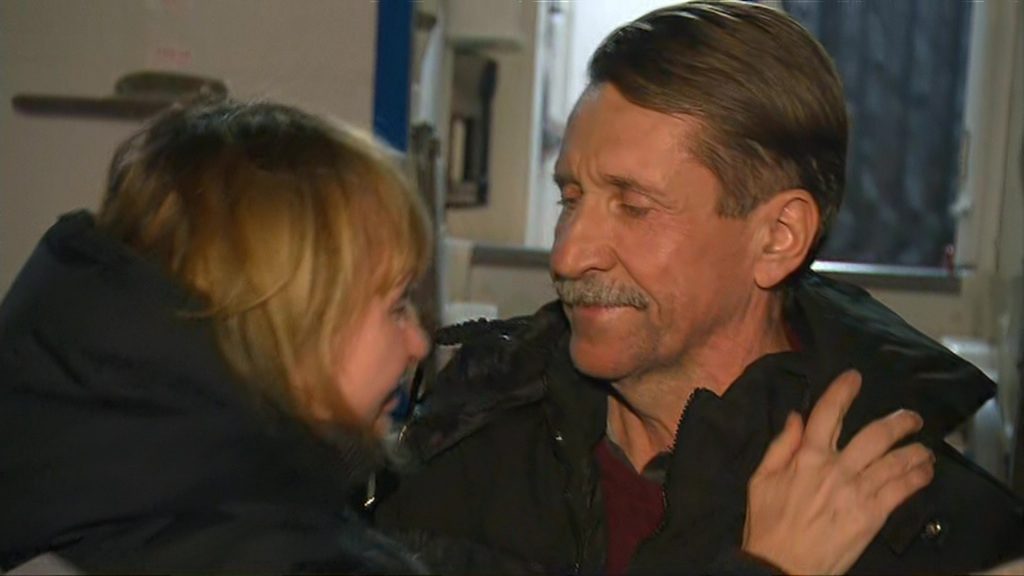
After returning to Moscow, Viktor Bout managed to give an interview to RT journalist Maria Butina, who was arrested in the United States in 2018 on charges of espionage. She made a deal with the investigation and pleaded guilty to conspiracy against the United States. After nine months in prison, she was deported to Russia, where she began working as a journalist.
Overall:
Of course, the release of Viktor Bout should be considered from different angles, although the fact of his return to Moscow looks like a victory for Russia. The only question is, what exactly will this “victory” bring?
During the time that Bout was in prison, most of his contacts either became inactive or were overthrown by other governments or dictators. And in general, the shadow market for weapons has significantly changed.
Of course, it is unnecessary to say that Bout was not an independent player. He was (and still is) a beautiful image, created with the active participation of Hollywood, but working for Russian military intelligence. A not-quite-planned product of two warring camps.
For Russia, particularly for the intelligence and its agents, his release proved once again that the expression “we do not abandon our people” still works. And if, in 2008, several state channels named Bout an “arms dealer”, then 14 years later, the same media call him a national hero.
For the United States, the exchange of Bout for an American basketball star is another demonstration of democratic principles and actualisation of the exact phrase, “we do not abandon our people”, but on a larger scale.
Like other similar events, the news of Bout’s release will soon fade into the background. And indeed, it will not affect the events in Ukraine in any way since these negotiation processes are in no way connected.

